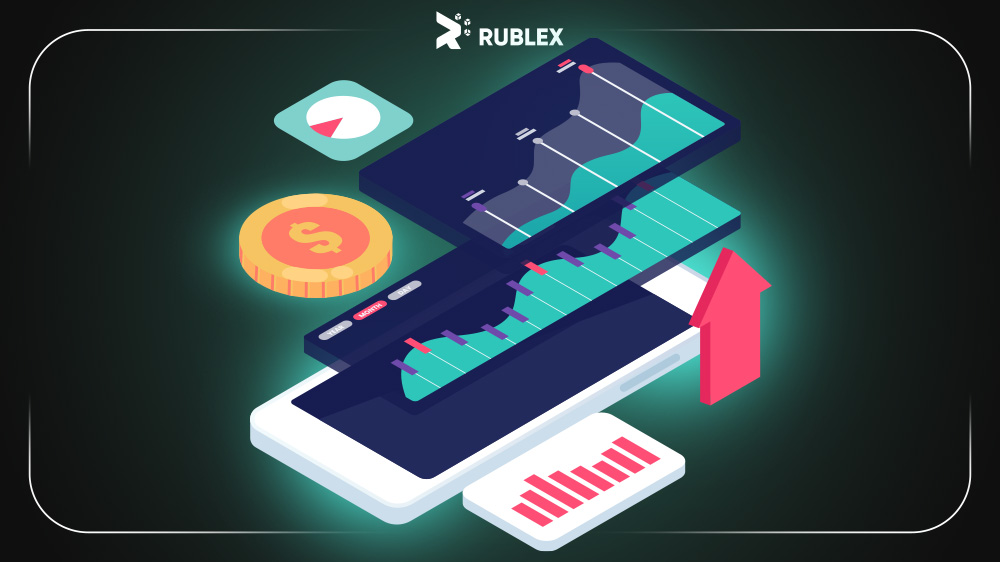- 2023 Aug 14
What is a decentralized exchange (DEX)?
DEX, which stands for Decentralized Exchange, has gradually established its position among users and enthusiasts in the world of cryptocurrencies as a significant aspect. These types of exchanges have reached a level of security and efficiency in cryptocurrency transactions through enhancements in security, transparency, and user control over their assets. Nowadays, most reputable exchanges and cryptocurrency-based platforms utilize the capability of decentralization.
Decentralized Exchanges, are recognized as the most flexible and significant solutions for cryptocurrency exchanges. In contrast to centralized exchanges that are affiliated with a central entity and require users’ trust in this institution, DEXs empower users to engage in direct peer-to-peer trading without the need for intermediaries.
What is the significant difference between centralized and decentralized systems?
DEX (Decentralized Exchanges) have managed to mitigate the security issues associated with financial transactions on centralized exchanges. This approach safeguards users from concerns of being hacked and unauthorized access to their assets, providing them with full control over their assets.
What are the advantages of decentralized exchanges?
One of the appealing aspects of DEXs is greater privacy. These types of exchanges enable users to trade anonymously and protect their personal details. Additionally, the complete control over private keys by users leads to a heightened sense of security for them.
On the other hand, in terms of flexibility, DEXs (Decentralized Exchanges) provide users with the ability to trade various types of cryptocurrencies. Through the use of different blockchain protocols, the diversity of tokens on these types of exchanges has greatly increased.
Another advantage of decentralized exchanges (DEXs) is the utilization of Liquidity Pools as an essential component. Liquidity Pools facilitate trading and provide liquidity to users. These pools are managed by smart contracts, and users can deposit their assets into these pools to contribute liquidity and receive rewards in return.
In summary, DEXs (Decentralized Exchanges), focusing on security, privacy, flexibility, and user control over their assets, are considered integral components of the cryptocurrency ecosystem. However, like any other technology, DEXs also come with their own challenges and risks, which users need to carefully study and be aware of to ensure optimal transaction efficiency and security.
Below, we provide a few examples of various platforms:
1.Uniswap: Uniswap is one of the most well-known decentralized exchanges operating on the Ethereum network. This system utilizes liquidity pools to enable users to trade and exchange various tokens without the need for a central intermediary.
2.PancakeSwap: A DEX operating on the Binance Smart Chain (BSC), which utilizes PancakeSwap Liquidity Pools for token swapping and liquidity provision.
3.SushiSwap is also a version of Uniswap that operates on the Ethereum network. This system also utilizes “yield farming” mechanisms to attract tokens and provide liquidity.
4.Curve Finance is a specialized decentralized exchange (DEX) for trading tokens related to tracking and announcing Gas fee and various ratios on the Ethereum network. Curve Finance focuses on facilitating the exchange of underlying base currencies, such as stablecoins.
5.”Balancer” is an intelligent DEX (Decentralized Exchange) and liquidity pool that enables users to exchange tokens and create liquidity pools with varying ratio distributions.
6.Kyber Network: A decentralized token exchange system that operates on various networks and enables users to exchange tokens directly.
7.Compound: It is a platform for validation and granting of loans through cryptocurrencies, operating on the Ethereum blockchain. This protocol enables users to lend and borrow tokens without the need for a central intermediary.
8.Aave: It is a cryptocurrency lending platform that operates on the Ethereum blockchain. This protocol uses smart contracts.
In Conclusion
Decentralized systems, designed primarily for this purpose, which can implement blockchain, are considered part of the blockchain and cryptocurrency world. These systems have the potential to eliminate the control of governments, organizations, and various intermediaries such as banks. Users themselves can have a direct impact on all transactions.
